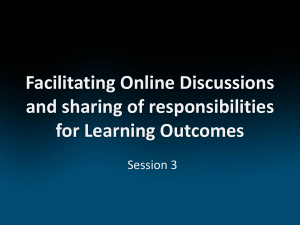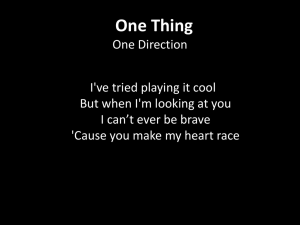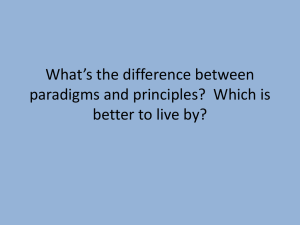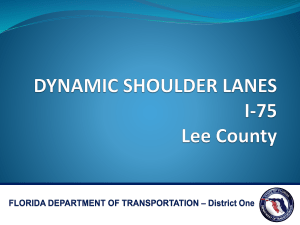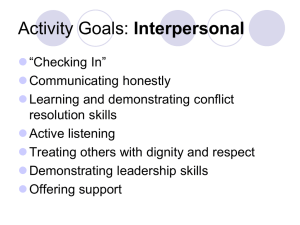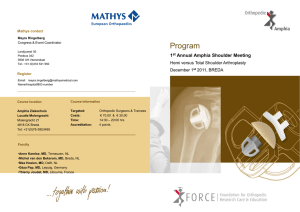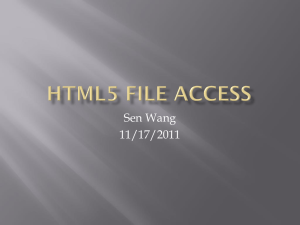Team Building Exercises
advertisement
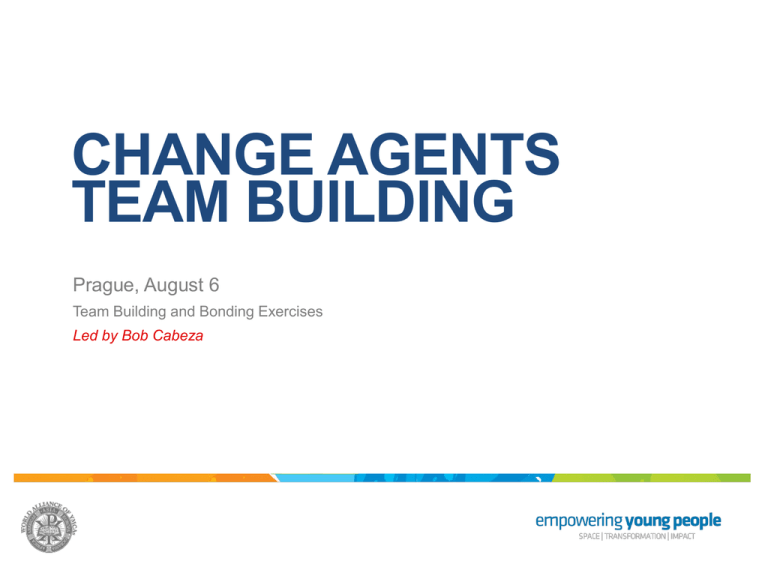
CHANGE AGENTS TEAM BUILDING Prague, August 6 Team Building and Bonding Exercises Led by Bob Cabeza TEAM BUILDING About 200 participants congregate in the Open Field. This segment gives Change Agents the opportunity to better know each other and to begin bonding as a team. The timing for these activities includes a quick debrief after each game, time for feedback and verbal interaction from the group as well as meaningful takeaways. Expected outcomes: • • • • INTRO The group will bond, becoming closer and more comfortable with each other socially and relationally The group will have a better understanding of each others’ differences and similarities as it relates to culture and beliefs Everyone will feel more comfortable sharing information and personal stories in order to have courageous conversations and solve problems The group will create a safe space for open dialogue, setting a positive group dynamic. Bob Cabeza and team (Trang Truong and Alvaro Rodriguez) led this series of exercises. These exercises involve light physical activity and make use of metaphorical learning to advance individual communication and leadership skills that reduce barriers to storytelling. The intent is to open up communication between diverse cultures and beliefs around common issues, problem solving and storytelling. These exercises also help build a cohesive team, establishing connections and trust, and enabling participants to further build the shared community through which learning and support will take place in the future. We want everyone to have fun, be active and play! The large group will sit in a circle for the following activities. (Necessary supplies: Ropes to form a circle.) TEAM BUILDING 1. Introduction by facilitators 2. Stretch Game Participants will be led through various stretches before moving to the active games. Participants will partner up with one other person shoulder to shoulder. They then will stretch their arms, legs, waist and necks in a fun, creative way to prepare. 3. Navajo Finger Game All participants will stand shoulder to shoulder in a large circle. They will be instructed to place their left palm up flat, while also putting their right index finger into the left palm of the person to the right of them. Once the facilitators say “go,” participants must attempt to capture their neighbor’s finger with their left hand while also making sure their own right finger doesn’t get caught. After, everyone switches by attempting the same process with the opposite hands. Let the broken social and cultural barriers, camaraderie and childlike laughter begin! 4. Introduction Swap Participants will be instructed to mingle in a large circle and meet one person. Once everyone is paired, each will share three specific details about themselves that answer these three questions: (1) What is your name, (2) What country are you from and (3) What social/community/global cause or issue are you passionate about and want to impact? Once both participants speak, they must split up and find a new partner that they do not know. Participants will pair up three separate times, each conversation lasting about three minutes. The space will be filled with noisy conversations that participants don’t want to end! 5. Dosey Doe Participants will be asked to find a partner; someone that they do not know and have not yet met. Once paired up, the participants must move only in a straight line together. They will link arms and begin walking forward. Once they encounter another pair of participants, the pair that ran into the other first, must then move in the opposite direction while still linking arms. This activity causes participants to move around frantically, constantly switching directions and encountering other pairs. Instant communication and trust occurs in this environment of controlled chaos! TEAM BUILDING 6. Head to Head Within the circled barrier, participants will be instructed to move around, never staying in one spot. Facilitators will shout out various body parts, like “HEAD!” Participants will have to quickly find a partner to connect head to head with, and as long as they can fit, participants can also work in groups of twos, threes or fours. The facilitators will shout “WALK” and participants must continue moving around until another body part is named, for instance, “ELBOW.” The process will start all over again until the game is finished. Bonding happens very quickly during this fun activity! 7. Change Game At this point, participants will return to the large group circle and stand shoulder to shoulder. Participants must find a partner and face one another, staying silent for 30 seconds. After that time, each will turn away from their partner and change something about their physical appearance, such as untying a shoelace, taking off a bracelet or turning their shirt around. After 30 seconds, partners will face each other once again and identify what looks different. Once both people speak, they must each turn around and make more changes and engage the process again. Body language, depth of communication and understanding our common humanity are an essential outcome of this game. 8. Captain My Captain Participants will stand shoulder to shoulder in the large group circle while facilitators explain the instructions for Captain My Captain. They will list four commands that they will shout out during the game. The first command is “Swab the Deck!” Participants will find a partner, link arms and “swab the deck” together, meaning they must pretend to clean the deck of a ship. The second command is “Land Hoe!” Participants will form groups of three to perform this task and copy the motion made by the facilitators. Third command is “Grub!” Participants will get into groups of four and again enact the motions made by the facilitators. For the fourth and final command, participants will get into groups of five, stand shoulder to shoulder and salute while yelling “Captain My Captain!” If participants cannot form the group correctly with the right number of people as directed, they are disqualified from the game. Four judges will assist the main judge, or “captain,” monitor the game and eject participants. Following directions, listening carefully and having fun are prerequisites for this activity! Day 1 TEAM BUILDING 9. The Blob Participants will again meet in the large group circle. Facilitators will identify one participant to be “The Blob.” Once the participant is identified, his or her goal is to tag another participant. Once someone has been tagged, they must link arms together with the Blob. The Blob will continue tagging other participants and linking arms to grow. Participants are allowed to move around but must stay within the set boundary area. If anyone steps out of the boundary, they are automatically sent into the Blob. No running is allowed in this game! “You too can be one of us!”

